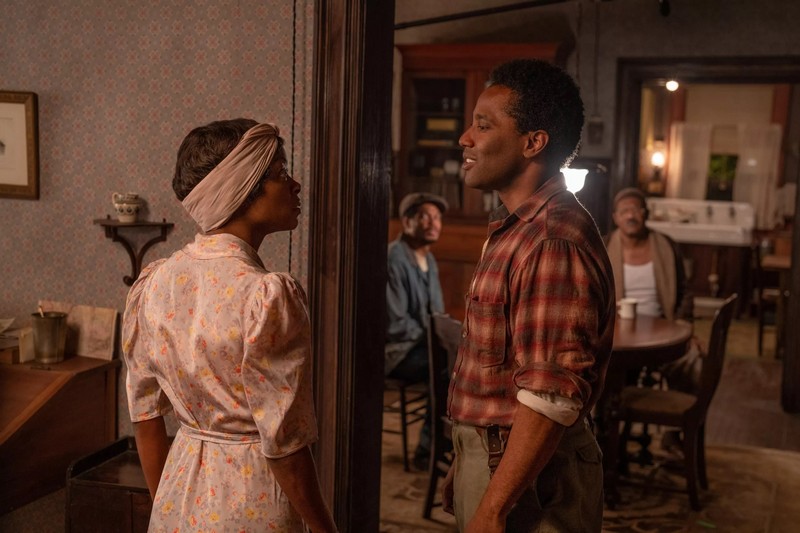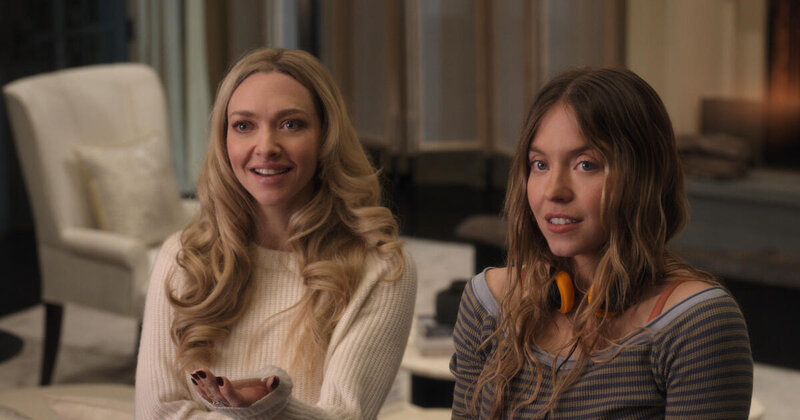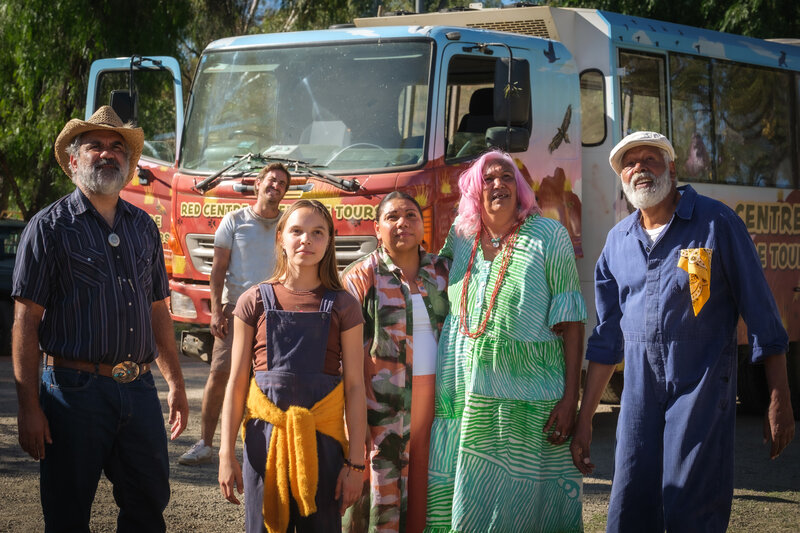The supremely talented Washington family come together to keep the legacy of the late August Wilson alive with The Piano Lesson. And in the process, they’ve created one of the most extraordinary films of the year.
The Piano Lesson is the third in patriarch Denzel Washington’s ambitious ongoing project to produce films of all Wilson’s Century Cycle – the playwright’s monumental 10-play series covering every decade of the 20th Century. Denzel has previously produced Fences (2016), and Ma Rainey’s Black Bottom (2020). For this instalment, he’s tapped sons Malcolm to direct; and John David to star.

The Piano Lesson begins with a flat-out brilliant opening sequence, in which a group of men steal a piano on the July 4th holiday in 1911. The Black men have taken the instrument from James Sutter (Jay Peterson), a wealthy White landowner. And this is Mississippi, so there are consequences. Exactly 25 years later, the same piano resides the home of Daoker Charles (Samuel L. Jackson) in Pittsburgh. Doaker lives with his niece Berniece (Danielle Deadwyler), and her daughter Maretha (Skylar Aleece Smith). Early one morning, Berniece’s brother, and Doaker’s nephew, Boy Willie (John David Washington) arrives at the house. He and his friend Lymon (Ray Fisher) have driven from Mississippi with a truck-load of watermelons.
Boy Willie explains that Sutter has died (mysteriously, falling down a well), and his land is being sold off in parcels. He wants one of those parcels; and he has a plan about how to get it. He’s already saved enough for one-third of the price. Selling the watermelons in Pittsburgh will gain him another third. And he plans to get the final third by selling the piano. But Berniece is having none of that. She’s connected to the complicated history and mythology of the piano, and isn’t about to let that go for Boy Willie.
To this point, I was expecting The Piano Lesson to be a family drama along the lines of Fences. And it is, to some extent. But it veers into a kind of mystery before becoming a full-on ghost story by the end. The supernatural elements however are clearly metaphors. This is far more complex than a simple genre movie. Screenwriters Virgil Williams (Mudbound) and Malcolm Washington explore Wilson’s themes, which are connected to family, history and the power of stories. Their control of the narrative is masterful. Of course, the source material is excellent (the play won the Pulitzer Prize for Drama in 1990) and Wilson’s lyrical dialogue adds to the film’s impact. Williams and Washington alter some details from the play, but its message remains unchanged.
While the play is set entirely in Doaker’s house, the film breaks out of those confines. Brightly coloured sequences in Mississippi, in a nightclub and in the Pittsburgh streets contrast the dull, almost sepia, interior of the house. DOP Michael Gioulakis doesn’t miss a beat. Alexandre Desplat provides a fantastic soundtrack (no, not all piano); although the musical highlight is a rousing, angry rendition of the worksong “Berta, Berta” by the male cast members. In his first feature film, Malcolm Washington mostly keeps the film rolling nicely along; although as might be expected, a couple of dialogue-heavy scenes drag a little. But that’s a small quibble. And it’s more than made up for by the incredible climactic scene.
In a masterstroke of casting that echoes its themes, Samuel L. Jackson provides the film’s steady core as Doaker. Jackson appeared in the very first stage production (at the Yale Repertory Theatre) in 1987 as Boy Willie; and then in the Broadway revival in 2022 as Doaker. Indeed, the film re-unites Jackson with John David Washington (The Creator) and Ray Fisher (Justice League) from the 2022 stage production. They reprise their roles as Boy Willie and Lymon. The pair have an easy chemistry; even as Washington’s fiery performance contrasts with Fisher’s restraint and bewilderment. In smaller roles, Corey Hawkins (The Color Purple 2023) and Michael Potts (Ma Rainey’s Black Bottom) make impressions as the chalk-and-cheese characters of aspiring preacher Avery and hard-drinking pianist Wining Boy respectively.
But Wilson’s original vision for the piece was to feature a strong female character; and the fabulous Danielle Deadwyler (Till) delivers that and more as Berniece. The character has to stand up to Boy Willie, and Deadwyler imbues her with a strength and resilience that matches or exceeds the bluster and passion of her brother.
The Piano Lesson is as powerful a film as you’re likely to see in 2024. This is a quality production that hits its marks. Don’t miss it.
The Piano Lesson is in cinemas from 7 November 2024 before streaming on Netflix from 22 November 2024
David Edwards
Other reviews you might enjoy:
- Malcolm & Marie – movie review
- Till – movie review
- Ma Rainey’s Black Bottom (Netflix) – movie review

David Edwards is the former editor of The Blurb and a contributor on film and television





